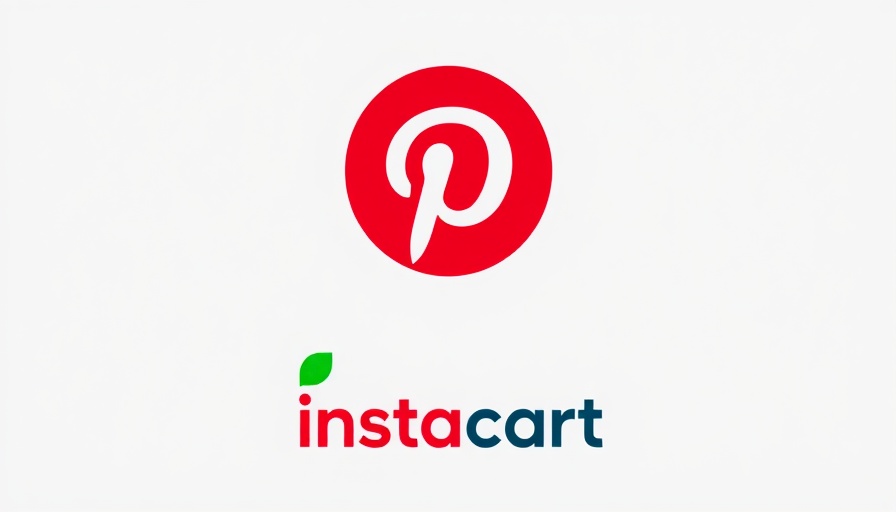
Revolutionizing Ad Targeting: A Strategic Partnership
Pinterest's recent partnership with Instacart is set to change how retailers engage with consumers in the digital space. By integrating Instacart's rich consumer data with Pinterest's advertising platform, businesses can target high-intent shoppers more effectively, leading to increased sales opportunities and refined marketing strategies.
Unlocking Insights from Instacart's User Data
For many food and recipe-related brands, the real value of this partnership lies in leveraging Instacart's first-party audience segments—developed from actual retail purchase behaviors. This level of granularity allows brands to precisely target their ads, ensuring they reach individuals most likely to engage with their products.
Instacart collaborates with over 1,800 retailers, pulling insights directly from those interactions. For example, a restaurant could promote its special cocktail recipe by directing users to buy the necessary ingredients via Pinterest ads. This not only streamlines the shopping experience but also enhances the potential for conversions by serving ads to users already inclined to purchase.
The Evolution of Shoppable Content on Pinterest
As Pinterest grows to become a more shoppable platform, the ease of buying products directly through ads opens a world of opportunity for businesses. Imagine discovering a new beauty product through a Pinterest ad and having it delivered within thirty minutes—all through just a few clicks. This seamless integration of availability and immediacy caters to the ever-increasing demand for convenience among consumers.
How This Partnership Influences Marketing Strategies
The influx of data-driven insights not only aids brands in refining their advertising campaigns but also transforms marketing strategies entirely. Brands can examine the purchase patterns and preferences identified by Instacart, thereby understanding what resonates best with their audience. This, in turn, enables businesses to craft targeted marketing messages that speak directly to consumers' needs and desires.
Implementing this kind of data-informed approach isn’t just beneficial; it's becoming essential. As consumers grow savvier and competition intensifies, businesses that adapt quickly by enhancing their targeting capabilities will likely lead the industry.
Challenges and Considerations in Ad Targeting
Despite the opportunities presented by this partnership, businesses must also navigate challenges associated with data privacy and consumer trust. As more companies seek to utilize consumer data for targeted marketing, maintaining transparency and building trust remains paramount. Customers need to feel secure that their data is being used ethically to enhance their shopping experience.
Looking Ahead: Future Trends in Shopping
As we look to the future, one can't help but speculate on the overall trajectory of digital shopping experiences. The integration of social media and shopping functionalities is expected to grow, with platforms like Pinterest at the forefront of this evolution. As technology becomes more sophisticated, retailers will have new tools at their disposal to create personalized shopping experiences that encourage consumer loyalty.
For businesses, staying abreast of trends and capitalizing on data-driven insights will be crucial in maintaining a competitive edge in a rapidly shifting market landscape.
Conclusion: Embracing Data-Driven Advertising
Pinterest and Instacart's collaboration represents a significant leap forward for digital advertising within the food and retail sectors. By utilizing Instacart's consumer insights, brands can ensure their marketing efforts are both targeted and effective. For retail businesses eager to enhance their growth strategies and reach high-intent consumers, this partnership offers a path forward in an increasingly digital world.
 Add Row
Add Row  Add
Add 




Write A Comment